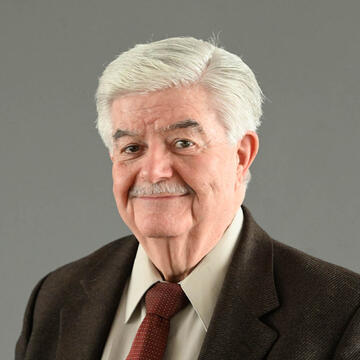Conflict After the Cold War: Arguments on Causes of War and Peace
Routledge

Leo A. Shifrin Professor Emeritus of War and Peace Studies and Professor Emeritus of International and Public Affairs

Focus areas: Strategic studies, U.S. national security policy
Richard K. Betts is the Leo A. Shifrin Professor of War and Peace Studies at Columbia University. He was Director of National Security Studies at the Council on Foreign Relations for four years and is now an adjunct Senior Fellow there. Betts was a Senior Fellow at the Brookings Institution until 1990 and adjunct Lecturer at the Johns Hopkins University's Nitze School of Advanced International Studies. He also served at different times on the Harvard faculty as Lecturer in Government and as Visiting Professor of Government. Born in 1947, he received his BA, MA, and PhD in Government from Harvard University.
A former staff member of the Senate Select Committee on Intelligence, the National Security Council, and the Mondale Presidential Campaign, Betts has been an occasional consultant to the National Intelligence Council and Departments of State and Defense, served on the Military Advisory Panel for three Directors of Central Intelligence in the 1990s and later on the External Advisory Board for the Director of the Central Intelligence Agency, and was a member of the National Commission on Terrorism. He lectures frequently at schools such as the National War College, Foreign Service Institute, and service academies. He served briefly as an officer in the U.S. Army.
Betts' first book, Soldiers, Statesmen, and Cold War Crises (Harvard University Press, 1977) was issued in a second edition by Columbia University Press in 1991. He is author of two other Columbia University Press books: Enemies of Intelligence (2007) and American Force (2012); three books published by the Brookings Institution: Surprise Attack (1982), Nuclear Blackmail and Nuclear Balance (1987), and Military Readiness (1995); coauthor and editor of three other Brookings books: The Irony of Vietnam (1979), Nonproliferation and U.S. Foreign Policy (1980), and Cruise Missiles (1981); editor of Conflict After the Cold War, Fourth Edition (Pearson, 2013); and coeditor of Paradoxes of Strategic Intelligence (Cass, 2003). Betts has published numerous articles on foreign policy, military strategy, intelligence, conventional forces, nuclear weapons, arms trade, collective security, strategic issues in Asia and Europe, and other subjects in professional journals. His writings won five prizes, and he received the International Studies Association’s ISSS Distinguished Scholar Award in 2005 and MIT’s Doolittle Award in 2012.
Betts is married to Adela M. Bolet, has three children, and lives in Teaneck, New Jersey.
Routledge
The American Interest
Brookings Institution Press
American Civil-Military Relations: The Soldier and the State in a New Era
The National Interest
Are you looking for one great book this summer — or maybe a few? We’re pleased to share recommendations from our faculty and staff.
Video: Richard Betts sees paths that could lead to any of three different outcomes, depending on policy decisions made in Washington, Moscow, and Kyiv.
One year after Russia’s invasion of Ukraine, SIPA experts assess the war’s meaning for the two nations and the world beyond, offering in some cases a possible road map of what lies ahead.
Professor Robert Jervis's colleagues reflect on his legacy in a video shown at A Conference on Today’s Competitive Geopolitical Landscape — in honor of Robert Jervis on February 17, 2023.
Multiple SIPA scholars are among the experts who weighed in on this key question regarding the war's likely outcome.